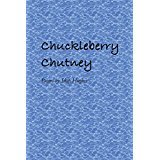Why & How Your Should Appreciate Poetry
Skip Hughes is a poet. Yes, he’s done many other things, including teaching in college. But at the core, he is a poet. And today, he would like to encourage you to consider poetry for the pleasure it can give you.
teaching in college. But at the core, he is a poet. And today, he would like to encourage you to consider poetry for the pleasure it can give you.
Of Poetry
Please forgive me, gentle reader, for I’ve yet to catch up with a most modern phenomenon, so this guest blog is an experiment -my very first blog post.
Do you like poetry? I hope you do, but if you don’t please permit me to persuade you toward enjoying poetry.
I. Poetry as spoken is the use of spoken language in story-telling or song, by conjecture among the most ancient uses of all spoken language, a phenomenon whose origin is lost in the distant mists of time.
II. Poetry as written is the earliest known form of western literature, recorded from c.800 B.C. (See Homer.) It was the only known form of western literature through c.460 B.C. (See Herodotus, Plato, et al.) As composed of alphabetic letters used to form words, it is the earliest known form of any literature. (See Oriental Languages.)
III. Poetry as performed. According to Aristotle (See the Poetics.) and as well by conjecture, audiences of sung poetry (See Greek Theatre.) experienced a sort of catharsis, an influence toward the civilizing of their thoughts and behavior. Accordingly, as performed either without or with music, i.e., as song, poetry ought to be powerfully evocative, easily commanding an audience’s attention.
IV. Poetry as Read.
Read a poem with care. Be prepared to laugh or cry, or both at once. Read a poem for the joy of it, sometimes for the sadness. Read a poem many times, and even memorize it. Keep on reading a poem only if does bring you joy or worthwhile sorrow, e.g., as treasured memory.
Read a poem for more than one meaning, and on more than one level, etc. emotional and intellectual. Also a poem may have one obvious interpretation, and another not so obvious that sneaks up on the reader.
Read a poem aloud, to somebody else or just to yourself. Listen to the sounds you’re hearing as you understand the words. That sound is an essential aspect of poetry.
Read poetry in small bites. Allow thinking time between poems. Never permit yourself to become less attentive by trying to read too much poetry at one occasion.
V. A poem to read.
Campfire Musings
by Skip Hughes
As yonder in the western sky, the last
Of bustling daylight dims, as father night
Shrugs on his fine black mantle, campfire light
Bewitches me, its artful spells to cast.
Where then companions, friends of years long past,
But in those ghostly shadows, tricking sight
Beyond the campfire round? They seem so slight,
Those wraithlike phantoms, forms of darkness vast.
The fire now flickers low, its embers faint,
Pale, ash-bound. Ghosts have fled, gone who knows where,
And sleep with spectral finger beckons me.
But day will come I trust, and reacquaint
Me once again with life, with light and air,
Another chance to live reality.
©2017 Floyd E. “Skip” Hughes
I quite attempt to write my poems to these standards, and some of them have indeed been published in a variety of anthologies and periodicals. I wrote “Campfire Musings” for my next book, since the content of my recently published one has been set for several years. My existing book, entitled 
is available on Amazon. Click here to take a look.
And leave us a comment on how you relate to poetry – like it, don’t like it, never read it, whatever. Thanks.



